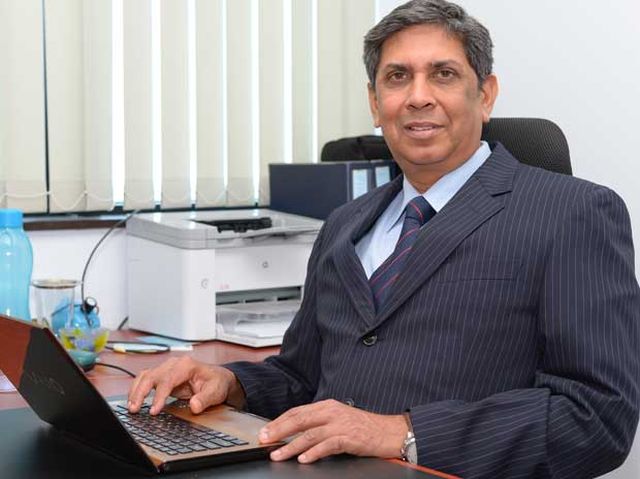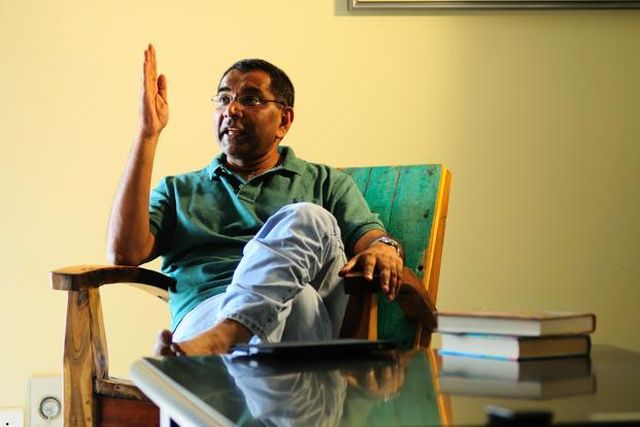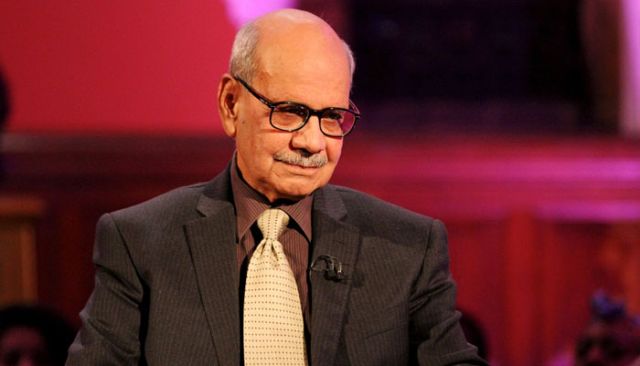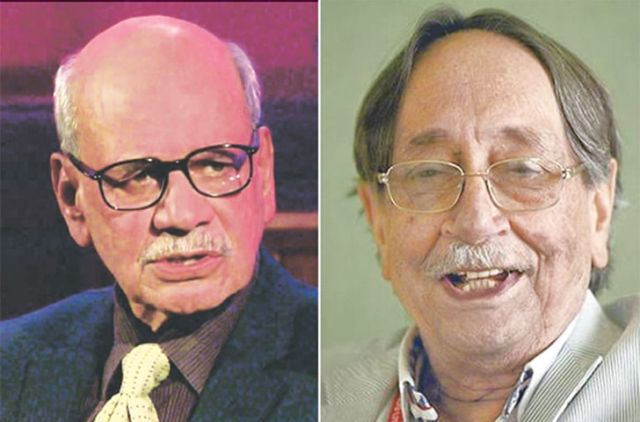
by admin | May 25, 2021 | Interviews

Writer Devdutt Pattanaik
By Saket Suman,
New Delhi : A marriage is not just about the bride and the groom, asserts mythologist Devdutt Pattanaik who has done considerable work on ancient Indian scriptures. In fact, according to him, it has always had a much larger connotation than what is normally perceived of it.
In his latest book “Devlok with Devdutt Pattanaik 3,” he presents two primary reasons for marriage being a big deal in India: firstly, “it became more important out of the fear that if people didn’t get married, they would become bhikkhus or sanyasis”, and secondly, “the parents fear that if their children didn’t get married “they would go astray, get ‘corrupted’, and would not become responsible.”
But is a married man or woman free from the desire to become a sanyasi or going “astray” and getting corrupted and becoming irresponsible?
“Marriage is a social institution, about family, about responsibility, and most importantly transmission of property, and lineage. Marriage forces you to think about others — the duty towards spouse, children and family estate. This is a burden. Sanyas is about thinking about yourself, only yourself. So is the life of hedonism, pleasure, one-night-stand, tinder.
“One can say, the journey into marriage is about ‘we’ and the journey away from it is about ‘me’. This me can be the flesh as in case of a hedonist and it can be the soul in case of the hermit. Householder stands in contrast to the hermit and the hedonist. If others matter, then the householder life becomes important. This does not mean marriage as much as responsibility for others, being dependable, rather than independent,” Pattanaik, who has authored over 30 books and 600 columns on mythology, told IANS in an interview.
In the book, he also considers marriage as a responsibility and refers to the Pandavas and Draupadi to highlight that “with marriage, wealth and power are exchanged.”
In this context, asked about the evolution of dowry to the shape that it has taken today, Pattanaik said that marriage has always been about exchange of wealth and power along.
“Dowry marriage is the result of a society that values women over men, and the men are seen as doing a favour by marrying a woman. In many communities, dowry is a way to show the value of a boy. The more dowry he gets, the more valuable he is. In a poor country like India, many parents see dowry as a way to earn money, increase their wealth, often to compensate for wealth lost via a daughter. No religion teaches anyone to disrespect anyone — however people often use religion as a tool to disrespect people.
“Just as Muslims justify hijab as part of Islamic tradition, and some Christians justify denying women rights over their body in matters of abortion as part of Christian tradition, some Hindus use dowry as part of Hindu tradition. These are just men who use religion to assert masculine power over women. Hinduism, unlike Christianity and Islam, is not a rule- based religion that prescribes how people should behave,” he said.
In the book, he further points out that “the males always seek out the females” and gives examples of the animal or bird kingdoms to establish that “there is rivalry among the males for the females”. He observes that the males suffer an anxiety about “not getting a female to mate with” and contends, in this context, that “every female is precious, whereas a male is not.”
When asked if he was suggesting that a disbalance in the sex-ratio (where there are more males to females) has been a rule of nature, Pattnaik differed and said that he was not suggesting anything.
“I am showing how the process of creating mating pairs in nature in animal and plant kingdoms is full of violence, competition and anxiety. There is always a lot of tension in matters of creating mating pairs in human society — which is why marriage is associated with a lot of violence, with parents controlling who their children marry, men forcing women to have sex with them, women being forced to bear children even if they do not want to. Hindu scriptures observe, without judgment, how we have not risen above our animal nature. How we are still anxious and dominating and territorial. It recommends ways to outgrow animal nature,” he said.
The book is based on Pattanaik’s “Devlok”, a television series on Epic channel where he shares his insights on matters related to mythology and responds to questions in detail.
(Saket Suman can be contacted at saket.s@ians.in)
—IANS

by admin | May 25, 2021 | Interviews

P. Ramnath, CEO of Sterlite Copper
By Aparajita Gupta,
New Delhi : Amidst death of 13 people and Tamil Nadu government’s order shutting down of the 22-year old plant, P. Ramnath, CEO of Sterlite Copper says that “false propaganda dominated over the truth about the company”.
“We are deeply saddened and aggrieved by the loss of 13 innocent lives in the unfortunate incident on May 22, 2018 at Tucorin town, a few kilometers away from our plant. While it is an irreparable loss to these families, Vedanta as a responsible corporate citizen and on humanitarian grounds, would like to extend all possible support to families of deceased and severely injured,” Ramnath told IANS in an email response to queries.
“The basic premise of protest was unfortunate, as the plant was non-operational, awaiting Consent to Operate from TNPCB (Tamil Nadu Pollution Control Board). False propaganda dominated over the truth about the company, we will continue to bring out the truth to the general public and explore all options,” he added.
Sterlite copper is a unit of Vedanta Ltd part of Vedana group headed by Anil Agarwal.
Ramnath said the company was always willing to have a dialogue with the protestors and address their concerns.
“We were always willing to have a dialogue with the protestors and address their concerns. This was even communicated to the general public and other stakeholders through print media. We invited them to come and visit our facilities to see for themselves how we have undertaken environmental friendly initiatives. They did not respond,” he said.
Tamil Nadu Chief Minister K.Palaniswami on May 29 said the order issued by the state government for shutting down the Sterlite Copper plant was legally valid and blamed the DMK for the violence in Thuthookudi or Tuticorin on May 22.
Ramnath said the company is still deciding on its future course of action regarding the plant closure order.
“Closure of Sterlite Copper plant is an unfortunate development, especially since we have operated the plant for over 22 years in most transparent and sustainable way, contributing to the Tuticorin and state’s socio-economic development. We will decide on the future course of action,” he said when asked whether the company would move the courts regarding closure.
The decision of the Tamil Nadu government to shut the copper smelter plant in Tuticorin would have serious economic ramifications by pushing India’s annual import bill by an estimated $2 billion, Ramnath had said earlier.
“While an estimated 30,000 direct and indirect jobs are now on the line, a large number of small to medium enterprises that are dependent on our smelter for copper are also likely to suffer due to supply disruptions. Since Vedanta Sterlite is one of the largest copper producers in the country, manufacturers in sectors ranging from electrical to defence will have to turn to imports and that will push up the nation’s annual import bill by an estimated $2 billion based on the current price,” he had said.
In a second successive blow to Vedanta Ltd, the State Industries Promotion Corporation of Tamil Nadu Ltd (SIPCOT) on May 29 cancelled, “in larger public interest”, the land allotted in Thoothukudi for the expansion of Sterlite Copper’s smelting plant.
Asked why the company did not move well in time to answer the allegation against it on pollution and environment degradation, Ramnath said: “Since the beginning of the protests our team has met with the protesting villagers and the various stakeholders to dispel their fears. We had published a series of advertorials to reach out to the general public and even had debates on regional TV channels, however anti-development associations/groups have whipped up the emotions of the public by citing completely baseless and unfounded health hazards.”
He also clarified that the company was not complacent regarding the simmering tension.
“There is no room for complacency in such matters and our team has been constantly engaging with all the stakeholders.”
The Vedanta copper smelter serves over 800 small and medium enterprises (SMEs) in the downstream industry for the electrical sector. The bulk of supplies to the electrical sector are to units in northern and western regions.
(Aparajita Gupta can be contacted at aparajita.g@ians.in)
—IANS

by admin | May 25, 2021 | Interviews

David Davidar
By Saket Suman,
New Delhi : After an unprecedented boom in India’s publishing industry during the past two decades, many insiders are fearful that it has now reached its saturation point. But the boom is not over, according to David Davidar, who maintains that India is “one of the most exciting book markets in the world” and its future is one of hopes.
Davidar, who was hired by the legendary Peter Mayer as one of the founder members of Penguin India way back in 1985 and ventured out to lay the foundations of Aleph Book Company some seven years ago, asserted that “there is no place to go but up” for India’s books market. Why?
“Because there is quite a lot of rubbish that is published, and as many subject areas remain unexplored, there is plenty of room for good, relevant books,” Davidar told IANS in an interview.
The acclaimed publisher explained that although India publishes nearly 20,000 new books in the English language every year, many of these books are “meretricious or just downright bad.”
Davidar contrasts this unfortunate state of affairs to the fact that books will always have “a central place” in the lives of the thinking and aware individuals. And even as the consumer now has access to “more published information and entertainment than at any time in human history”, much of it (especially that found in digital form on the Internet and social media) is “of little value”, he noted.
“There will, therefore, always be room for thoughtful, stylish, innovative, insightful books (in whatever format you choose to read or access them – I am platform agnostic) for those who want to go beyond the commonplace, banal and mediocre,” he pointed out.
But the Indian book market, like anywhere else in the world, has its own hurdles and Davidar identified a small readership base, not enough retail outlets, not enough marketing avenues, low prices, high discounts, high material costs, high returns, customers who do not pay on time, customers who default on payments and so on and so forth as the major challenges faced by publishers in contemporary scenario. But there is hope as this market is always expanding.
“In India, because the bar has been so low for so long (all of us in the business have to accept some of the blame for that), and there are new generations hungry for quality information and entertainment, the future is brighter than in most parts of the world, where reading habits and publishing revenues are declining. There is no place to go but up. Great books will not die, but will continue to thrive,” he said.
Davidar has been a publisher for over a quarter century and has published several of the country’s finest writers, including Shashi Tharoor, Vikram Seth, Arundhati Roy, Kiran Desai, Khushwant Singh, Ruskin Bond, R.K. Narayan, Amitav Ghosh and Jeet Thayil. He is currently the Managing Director and Publisher of Aleph Book Company, a literary publishing firm he co-founded in 2011.
He has also authored three novels “The House of Blue Mangoes” (2002), which was published in 16 countries, and became a bestseller in six of them; “The Solitude of Emperors” (2007), which was shortlisted for the Commonwealth Writers’ Prize; and “Ithaca” (2011).
(Saket Suman can be contacted at saket.s@ians.in)
—IANS

by admin | May 25, 2021 | Interviews, Muslim World

Former ISI chief, Lt. Gen. Asad Durrani
By Sarwar Kashani and Saket Suman,
New Delhi : Former ISI chief, Lt. Gen. Asad Durrani, who has triggered a controversy in Pakistan with a book he co-authored with his once-rival Indian spymaster, says that the army and the intelligence agency of his country have never stopped any civilian government in Islamabad from improving ties with India if done on the basis of “sound principles” of international relations.
“The common belief (that civilian governments in Pakistan are subservient to the military when it comes to critical foreign policies) is seriously flawed. No one ever prevented a civilian government from improving relations with India – if it did that according to sound principles of relations between nations. Otherwise, even a military ruler like (Pervez) Musharraf could come to grief,” Durrani told IANS in an email interview from Pakistan.
Pakistan’s Inter-Services Intelligence (ISI) chief was denied a visa for the launch of the book, “The Spy Chronicles: RAW ISI And The Illusion Of Peace”, which was released jointly by former Vice President Hamid Ansari, former Prime Minister Manmohan Singh and former Union minister Yashwant Sinha in New Delhi on May 23.
He has since been summoned by Pakistan Army asking him to explain his position on views attributed to him in the book of dialogues that throws light on the perspectives, assumptions and observations of the two spymasters on Kashmir; Hafiz Saeed and 26/11; Kulbhushan Jadhav; surgical strikes; the deal for Osama bin Laden; how the US and Russia feature in the India-Pakistan relationship; and how terror undermines the two countries’ attempts at talks.
Asked about his remarks in a pre-recorded video played at the book launch in which he blamed the “Indian deep state” for being instrumental in denying him a visa, Durrani said: “Every country has a ‘deep state’- at times called ‘establishment’ or ‘nomenclatura’ (of the Soviet era) and is composed differently.
“India and the US have some of the most powerful ones. They keep the political leadership ‘in line’.”
Replying to a question about current border tension between India and Pakistan with talks stalled and all sports and cultural exchanges at a standstill, the former ISI chief said nothing was “forever” in ties between the two nuclear-armed nations.
“Thaws and freezes will come and go in the foreseeable future. The single most important factor that holds back is India’s entrenched belief that the ‘status quo’ suited her better. Any major change, even if seemingly of some good, would create a dynamics that India might not be able to control,” he pointed out.
In the book, Durrani suggests that instead of having “a confidant of each Prime Minister, a team headed by someone considered suitable by the major political parties, the foreign office and the military”, should be engaged for talks “to ensure their long-time relevance”.
Asked how was it possible when neighbourhood policy of the two countries changed with their dispensation, Durrani said: “Precisely for that reason. If there was wider participation there might be more chances that the policies would not be fiddled with ‘too much’. Indeed, the government of the day has the prerogative but in most cases was unlikely to ride roughshod like (US President Donald) Trump.”
Asked if he agreed with his Indian counterpart’s assertion that India should talk directly with the Pakistan Army, the former military general said: “Dialogues take place at multiple levels — official and unofficial. But a political umbrella for the process is the sine qua non (essential condition) for (its) success.”
About Pakistan Army Chief General Qamar Javed Bajwa’s remarks that India and Pakistan need to talk to solve all their disputes, including Kashmir, Durrani said it wasn’t unprecedented for any military chief to advocate peace talks.
“I can’t read his (Bajwa’s) mind. But hardly any chief before him said anything different. (Former military dictator General) Zia ul Haq even used ‘cricket diplomacy’.”
About Musharraf’s four-point formula to solve the Kashmir issue between the countries, he said it was quite popular in Jammu and Kashmir.
“But remember what I said about ‘sound principles of international relations’. If ignored even the best of ideas would not work-like they didn’t in the period you have mentioned.”
The four-point formula was floated in 2006, when Manmohan Singh was the Indian Prime Minister. It advocated no re-drawing of borders in Kashmir but allowing free movement across the region for people on both sides of the Line of Control.
It suggested self-governance or autonomy but not independence for the state divided between India and Pakistan.
The military ruler also suggested phased withdrawal of troops from the region and working out a mechanism jointly so that the road map for Kashmir was implemented smoothly.
The idea never took concrete shape though it was for the first time that a Pakistan ruler was departing from a historical stance of seeking plebiscite for Kashmiri people according to the UN resolutions.
The two spymaster in the book have suggested that the idea should be open for a revisit.
(Sarwar Kashani and Saket Suman can be contacted at sarwar.k@ians.in and saket.s@ians.in)
—IANS

by admin | May 25, 2021 | Interviews

Former RAW chief A.S. Dulat (right) and ex-ISI chief Lt Gen Asad Durrani
By Sarwar Kashani and Saket Suman,
New Delhi : At a time when the India-Pakistan border is crackling with persistent gunfire with mounting casualties on both sides, former Indian intelligence chief A.S. Dulat has floated a disruptive proposal – invite Pakistan Army chief General Qamar Javed Bajwa for a dialogue to reduce tension and talk peace.
Dulat said General Bajwa was making all the “right noises”, referring to his April remarks that disputes, including Kashmir, between India and Pakistan can be solved only through peace talks.
“We should invite General Bajwa, the army chief. He has been talking peace and also a lot of our frustration in our dialogue with Pakistan is because we feel frustrated by the armed forces or what we call the ‘deep state’ — the ISI or the army. Therefore, why not talk to the army chief directly? He is talking reasonably now. Why not invite the army chief, just an idea,” Dulat told IANS in an interview at his south Delhi residence.
India has maintained that it will talk only to the elected civilian leadership in Pakistan and has shunned talking to the Pakistani military, which however controls key decision-making on foreign policy – particularly with respect to India – and security in the Pakistani establishment.
Dulat served as chief of India’s Research and Analysis Wing (RAW), the country’s external intelligence agency, from 1999 to 2000 and was a close aide of then Prime Minister Atal Bihari Vajpayee on Kashmir affairs from 2001 to 2004.
He has participated in a somewhat unique book of dialogues, “The Spy Chronicles – RAW ISI And The Illusion Of Peace” with his once rival, former Pakistani spy chief Lt. Gen. Asad Durrani (retd).
The book throws light on Kashmir, and a missed opportunity for peace; Hafiz Saeed and 26/11; Kulbhushan Jadhav; surgical strikes; the deal for Osama bin Laden; how the US and Russia feature in the India-Pakistan relationship; and how terror undermines the two countries’ attempts at talks.
Dulat, who has previously authored “Kashmir: The Vajpayee Years”, said “not talking to Pakistan is a sort of a handicap” more so at a time when geo-political landscape was witnessing a new churn.
“There is a lot happening in the world around us and they are all taking interest in this particular region. The Americans have a big interest in Pakistan and in Afghanistan.
“Likewise now, the Chinese, the Russians and the Iranians have all developed interest and we need to take note of that and in that, I think, not talking to Pakistan will not help,” he said.
But is it wise to extend an invitation to the Pakistani army chief, particularly at this juncture when ceasefire violations across the frontier have killed scores of civilians and over 40,000 residents were forced to flee their homes from the border areas in Jammu?
“Isn’t it more reason that we should talk,” Dulat asked, adding: “You are presuming that all these cease-fire violations happen only from the Pakistani side and only our people are suffering.
“There is a their side of the story also, it can’t be one-sided. If there is firing from one side, the Army or the BSF is bound to respond.”
Dulat, who served in Kashmir as the Joint Director of the Intelligence Bureau from 1988 to 1990, maintained that “there is no military solution” to the seven-decade old conflict that has killed tens of thousands of people and triggered two wars (1948 and 1965) and a prolonged military skirmish (1999) between the two nuclear-armed powers.
“There is only so much that the army can do; after that it is time for the politicians to play their part,” he said.
The former spymaster also noted that there was no space for big-brotherly attitude in bilateral relations, suggesting that Prime Minister Narendra Modi should revisit his hardline stance against Pakistan.
“The trouble with Modi is, because India is a big country (there is no doubt about it), we want things on our terms but bilateral relationships do not work in this way. We should not ask ‘isme mere liye kya hai’ (What does it hold for us?)
“Once you start talking to Kashmiris, there is a lot for you. You should try this and see what all is in store for you.”
He said most things in the Modi government were related to elections but still expressed a “feeling” of a breakthrough on Kashmir before the 2019 Lok Sabha elections that are due in May.
“Somewhere I have a feeling that something will happen. It’s just a feeling. I am not in government. But I have a feeling.”
(Sarwar Kashani and Saket Suman can be contacted at sarwar.k@ians.in and saket.s@ians.in)
—IANS





